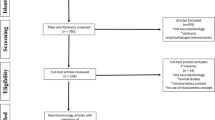Abstract.
Definition of the problem: Is it the brain that makes a human being a person? This anthropological question has been raised because of the findings of modern human brain research, and there are severe ethical consequences anew: If the appropriate anthropological answer is yes, then all invasive research would be problematic, because one would touch the basis of human essence. The problem is that the two major philosophical paradigms that offer an answer to the anthropological question, dualism and monism, have opposing concepts. Arguments: This paper argues that the error of these two paradigms is that they understand the human body and the human mind as ’res’– as things. The explanation of the human being as an interactive unit of body and mind is impossible in both paradigms. A third anthropological view that tries to make that understandable is the anthropology of the Hebrew Bible. It does assume the category ’thing’ while speaking about humans, it presumes the category ’aspect’. There is no Hebrew word for ’mind’ in contrast to ’body’ or vice versa. The biblical language only knows terms for the unity of human beings seen under a certain aspect. Conclusion: Here, the body and thus the brain are important and necessary condition for human essence, but this is not a sufficient explanation for the human personality. Invasive research on the human brain is here neither generally forbidden nor tolerated – one has to demonstrate in every single case whether the planned operation touches regions that are crucial for the personality of the human subject.
Zusammenfassung.
Die alte anthropologische Frage nach dem Verhältnis von Leib und Seele, die im Kontext der Ergebnisse der modernen Hirnforschung neu als Gehirn-Seele-Problem gestellt wird, hat erhebliche ethische Konsequenzen für die Beurteilung der Hirnforschung. Ist nämlich die Geist-Seele als dasjenige, was der zu schützenden menschlichen Person zugrunde liegt, eigentlich nichts weiter als ihr Gehirn, so werden invasive Eingriffe an eben diesem Gehirn höchst problematisch. Das Dilemma dieser ethischen Frage ergibt sich aus der ungelösten anthropologischen Diskussion: Die beiden Hauptparadigmen – Monismus und Dualismus – geben diametral entgegengesetzte Antworten. Ein Lösungsvorschlag aus theologischer Sicht ist die Einbeziehung der biblisch-christlichen Anthropologie sowie aktuell das dieser nachfolgende philosophische Konzept der beseelten Leiblichkeit in den anthropologischen Diskurs. Letztere fassen den Menschen immer als eine leib-seelische Einheit und weisen das Gehirn als einen wesentlichen, aber nicht hinreichenden Grund menschlicher Personalität aus. In einer medizinischen Ethik auf der Basis dieser Anthropologie muss jeder Eingriff auf seine potentielle Bedrohung für die integrative Einheit ,Mensch’ geprüft werden – vor allem, aber nicht nur in der Hirnforschung.
Similar content being viewed by others
Author information
Authors and Affiliations
Rights and permissions
About this article
Cite this article
Kliegel, M. Ist der Mensch sein Gehirn? . Ethik Med 12, 75–87 (2000). https://doi.org/10.1007/PL00021310
Issue Date:
DOI: https://doi.org/10.1007/PL00021310




